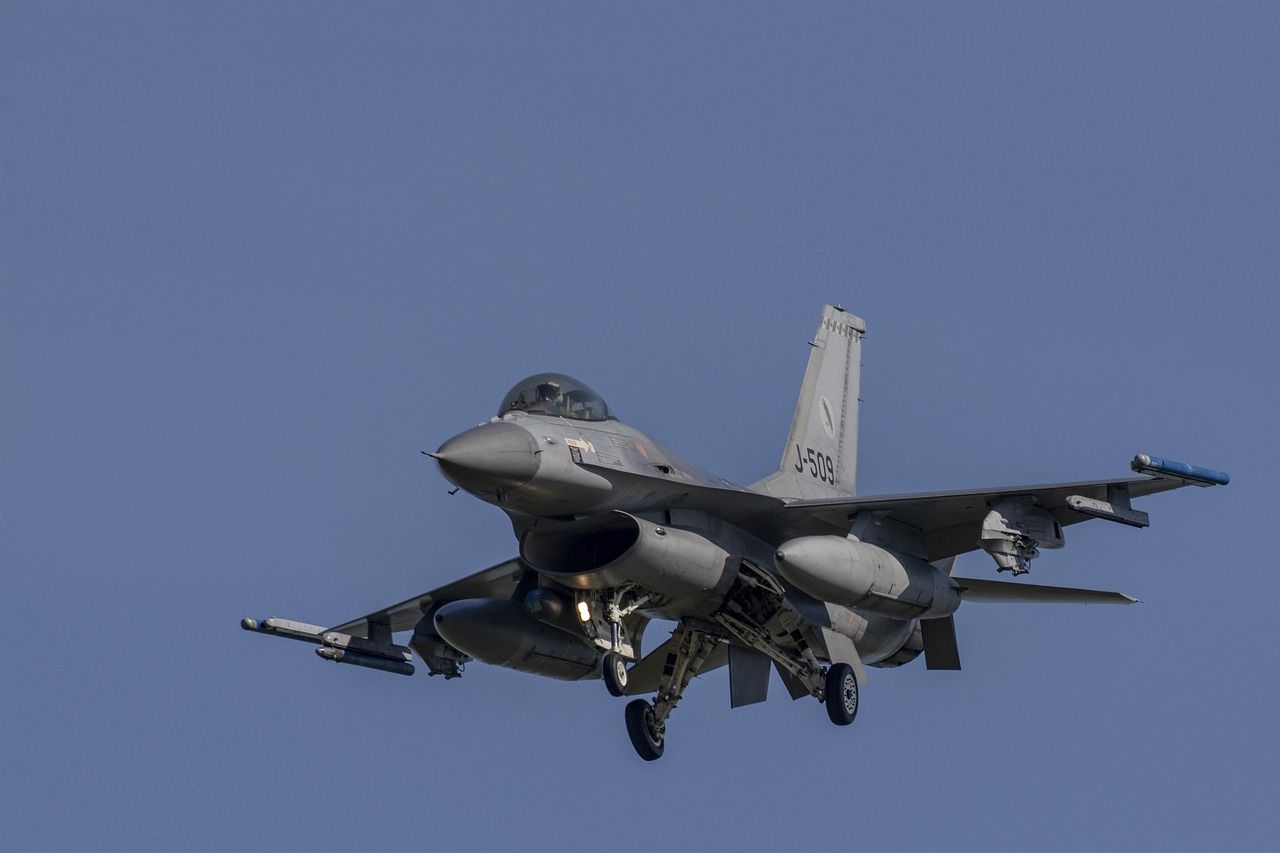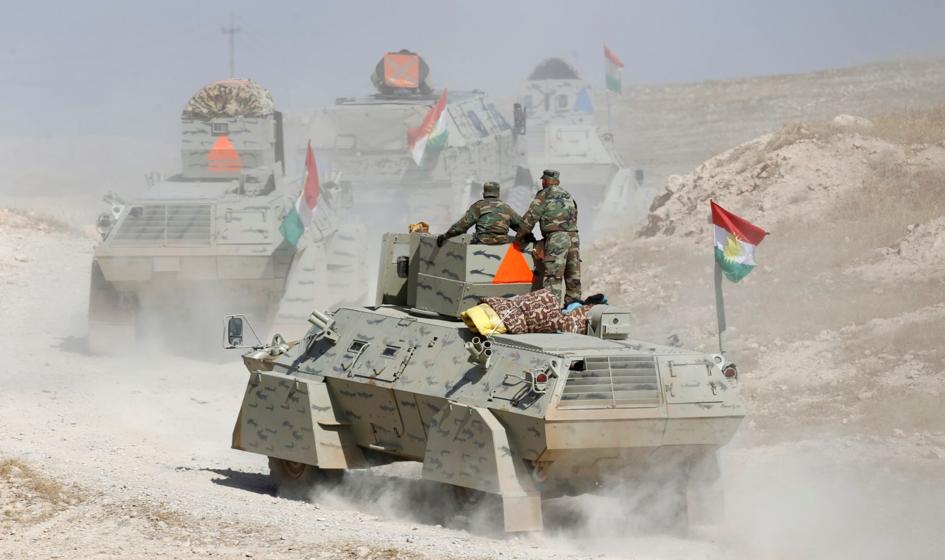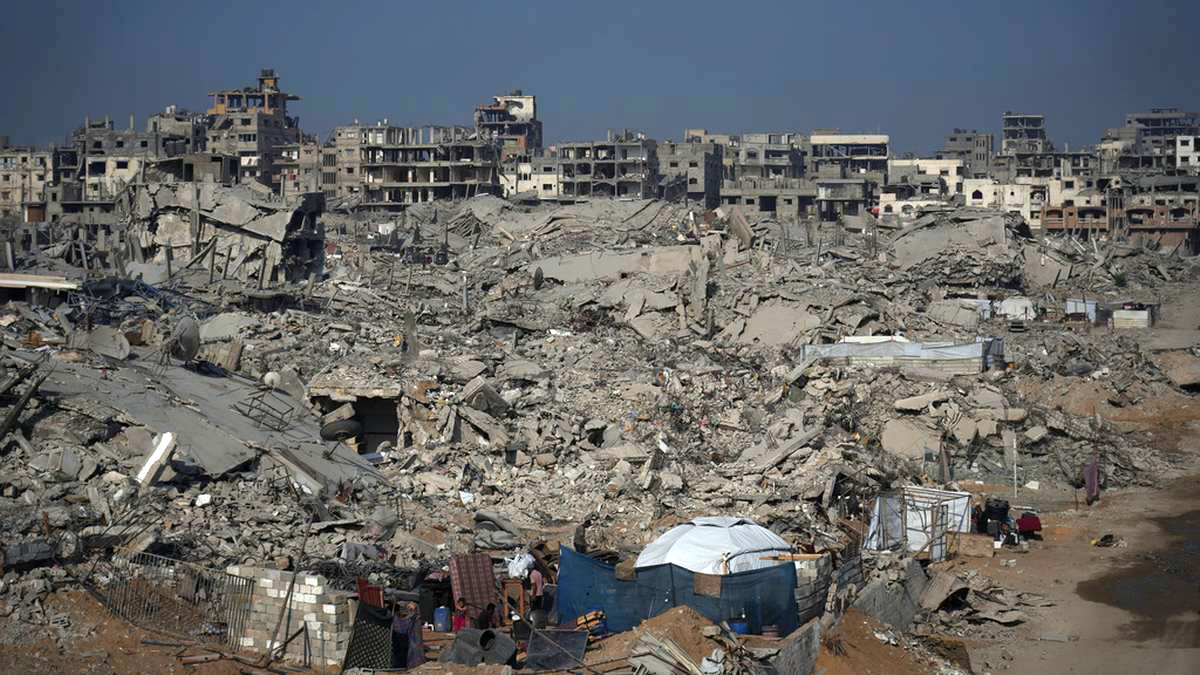The ignorance of the applicable cultural context may affect the safety of soldiers and the success of operations. Recognizing an opponent (sometimes besides allies) means not only gaining a circumstantial cognition of his fighting abilities, but besides learning his beliefs, the culture he derives from, or the religion he professes.
Example one: Afghanistan, a stabilisation mission. Polish soldiers receive a gift from their Afghan collaborators and soldiers of prayer rugs. However, they do not know what to do with them, so they usage them as walkers or shoe mats. This behaviour provokes outrage and opposition of Muslims – the situation needs to be eased and soldiers explained that it is inappropriate behavior.
Example two: Afghanistan, training mission. The Afghan soldiers assisted by the Americans halt the road vehicle, talk to the driver, order the door and trunk to open. However, they do not look inside and order the driver to leave. It turns out that the Afghans imitate the behaviour they have previously observed in Americans, but do not realize what their task is, they simply mark certain behaviors and gestures. No 1 explained to them what to do due to the fact that the Americans thought it was obvious.
Example three: Iraq, training mission. The delegation of elder officers and commanders visits the Polish military contingent. The visit plan includes dinner with hosts, representatives of the Iraqi army. During the meal, 1 of the Polish courtesy officers asks his Iraqi counterpart whether he likes the meal. This in consequence takes a solid part of fish from the dish and puts it on the neighbour's plate. The Pole is surprised, but instructed by the translator, he does not refuse to taste the dish – any another reaction would be perceived as an afront. What's the connection? All the soldiers described above, on missions in a abroad country, faced cultural differences. And although these events can be considered anecdotal, they show that in the same situations people raised in different cultures can behave completely differently.
A common deficiency of knowing for differentness and another sensibilities can lead to serious problems, as well as endangering the lives of soldiers and endangering the success of the mission.
Drawing on experience
One of the basic concepts on the modern battlefield is situational awareness. The soldier must know where he will act, who he will deal with and what task he has to do. He should be able to decently admit the terrain and the strength of his opponent. The recognition of the opponent (and, in certain situations, the case besides concerns allies or training partners) means not only to gain circumstantial cognition of its combat capabilities and skills. It is besides about learning his customs, his beliefs, his culture, his religion. Soldiers always operate in a certain environment with another people – very frequently besides people who are formed in another culture. As a result, problems can become even the most apparent – it would seem – gestures, like nodding for confirmation (e.g. in Bulgaria – not far culturally from Poland – to confirm it turns its head to the sides).
For this reason, in fresh years, the origin that has been referred to plays an increasingly crucial function in planning military operations. intercultural or cultural awareness (cultural awareness). The improvement of this discipline was influenced by the experiences of the world's chief armies – especially the American army – during the fresh decades of wars, but besides by various military, stabilization and training missions. From these experiences, the full North Atlantic Alliance besides draws from these experiences, as their conclusions let to conclude that intercultural awareness may depend on the success and effectiveness of the tasks performed. In modern studies on martial arts, attention is paid to the fact that cultural specificities besides affect military activities – it determines not only the surviving behaviour indicated in the first paragraphs of this text, but besides tactical and even strategical concepts.
Thumb up?
Preparation for action in an innovative environment covers virtually all aspects: gestures, body language, nonverbal signs, speech and tallness of voice, visual or physical contact, sense of time, functioning in a given community hierarchy, gender, cultural and spiritual issues. Even the individual private space around the body is important: there are nations that shorten the distance and not only rapidly pass on to you, but also, for example, they stand very close to the interviewer, like to contact him, pull his sleeve or pat him on the shoulder – but there are ones that alternatively keep the distance and do not tolerate close contact, especially physical contact. The encounter of 2 of these cultures can immediately lead to difficulties: 1 will feel attacked and solicited, the another being repulsed and mistrusted.
In any cultures it is even crucial to usage a circumstantial hand in contact. In the mediate East, the left hand is considered unclean, so gestures should be done with the right hand, and it should besides be utilized to indicate, convey, or sacrifice objects and contact another people. There's 1 more thing: time. In the culture of many countries, including Poland, punctuality is considered a virtue and an crucial feature of personality – it allows for planning and organizing the day. However, there are cultures that perceive time completely differently: punctuality itself is little crucial than, for example, time devoted later to common contact: 1 can so be late and the substance can be resolved at another time – while a sign of rudeness is considered to be, for example, a fast transition to business and the end of the gathering after their completion, without sacrificing a fewer moments to say goodbye and courtesy. The fact that punctuality and time can be viewed completely different from in Polish culture, was convinced by Polish soldiers serving in Afghanistan. Sometimes they met with the Afghan saying, "You have watches, but we have time."
Speaking of gestures: the thumb raised up is considered a very affirmative sign in Western culture. In many Asian cultures it is the equivalent of showing the mediate finger. Furthermore, differences in gestures are besides apparent between individual Western societies: the pointing fingers erected to the top and the mediate in the form of the letter V in Poland are associated with the symbol of victory. Meanwhile, in the United Kingdom, the same sign, but made in specified a way that the individual making it has bent fingers towards himself – not the 1 looking at it – is already vulgar and means as much as in Europe extended mediate finger or raised thumb in the mediate East.
Different codes
Can the ability to behave decently on check-points or during meetings with the elders or local administration aid soldiers to carry out their mission? That's right. The mission of soldiers is to fulfil the objectives of the mission in which they participate. This means that they are to defend their own forces, take care of the equipment entrusted, but besides defend or assist residents of the area Or train his soldiers. In order for this to happen, it is essential to contact the population, not only average citizens, but besides local leaders, mayors, parliamentarians, heads of local companies, politicians and informal authorities, e.g. older villages. Therefore, in order to accept the presence of abroad troops in this area, and to make cooperation well, the preparation of the mission must take into account not only the number of soldiers and their weapons, but besides the strategy of values of the inhabitants of the area, their moral norms and the ethical code adopted in the community. All this allows you to avoid problem and realize the behaviour of the another side, and gives you a chance to be accepted, accepted and understood. With cognition of local habits and behaviours, you can learn to read them and respond correctly in the interests of your own comfort and safety. On the another hand, moving customs and behaviours from one's own culture to a different cultural ellipse can be met with resentment or hostility, even if the soldier has the best intentions and is open and kind.
Worse erstwhile you make mistakes. An example is known of Americans who in 2012 at Bagram Base in Afghanistan burned copies of the Koran confiscated by imprisoned terrorists. They were afraid that the Taliban was sending messages through the books. The case ended with outrage and protests in which at least 30 people were killed and nearly 200 were injured. specified incidents, especially those that end bloodyly, do not service to build ties and trust between soldiers and the local population, and this simply translates into the functioning of the contingent.
Sometimes problematic situations arise due to ignorance and deficiency of knowledge, and the reactions of the another side may be shocking. During a mission to Afghanistan, Canadian soldiers upset agrarian dogs, so soldiers fired at them so that barking would not inform the Taliban. Then 1 of the Afghans approached the Canadians and told them to kill 1 of his children alternatively than dogs. From our point of view, it's shocking behavior, but this man preferred to lose 1 kid alternatively than a trained shepherd dog that could feed the full family.
The importance of cognition of culture and customs is besides discussed by St. Chor. staff. Michał Rózga, elder Petty Officer in Command 12th Mechanized Division, erstwhile a associate in the mission in Iraq and Afghanistan: – In countries that are culturally different from Poland, specified as Iraq and Afghanistan, many things can be amazing and shocking. Misunderstanding can origin various undesirable situations, or even escalate conflicts or aggression. The ignorance of the cultural context can affect not only security, but besides the success of the full mission in utmost cases. I remember that, for example, in Afghanistan, soldiers were incapable to accept the function women play in their society. They reacted erstwhile they saw, for example, a female carrying weights and her husband was not helping her. But their occupation is not to change local customs or to teach.
Not just the Alliance.
Knowledge of the Convention in its behaviour is 1 thing, but an crucial component is besides a brief orientation in the specificity of the area of conduct. Military missions are very frequently carried out in mixed areas – culturally, linguistically, ethnically and religiously diverse. An example is Lebanon, Kosovo whether Bosnia and Herzegovina – and there are now Polish soldiers sent. The historical context allows us to realize the background of the problems, while explaining the issues of language, cultural and spiritual issues, where the discord, rivalry or hatred between representatives of different communities comes from.
The importance of appropriate preparation of soldiers for conflict activities is recognised by decision-makers in structures organising military missions – including NATO Command. This is evidenced by the Alliance's programs and doctrinal documents, but besides by debates and conferences on the analysis and survey of problematic phenomena. The acquisition of the essential intercultural competences is so a essential part of the preparation of soldiers going on stabilisation, training or peacekeeping missions.
Much more advanced cognition is necessary, on the another hand, for military specialists, specified as CIMIC civil-military cooperation, intellectual (PsyOps) and Information (InfoOps) cells. It has been confirmed that compliance with the rules adopted in a given culture, cooperation with the local administration, knowing of its needs determines the effectiveness of operations concerning civil-military cooperation and forms of assistance provided. As anecdotes today, stories are being told about handing in canned support to beef residents of India or pork in Muslim countries.
Afghan state of Nangarhar, January 6, 2015.
In Poland, cultural training for soldiers leaving as part of the quotas for abroad missions has been conducted by the Centre for Preparation for abroad Missions in Kielce for years. “In accordance with the applicable rules, all soldiers on missions must undergo training on cultural conditions, religion and customs,” said Colonel Adam Włoczewski, Commandant of CPdMZ-etu, and adds: “Soldiers are besides trained before leaving in the field of civilian protection, protection and support of victims of force on grounds of sex, protection of children in armed conflicts, principles of civil-military cooperation or protection of cultural goods.
The classes are based on general guidelines prepared by NATO, the UN or the European Union, but in Kielce they are enriched with additional content. – The courses besides apply to soldiers who are in charge of NATO readiness initiative, NATO consequence Force or EU Combat Group. Everyone participates in the classes regardless of degree, position and missionary experience. The course applies both to a private who leaves for the mission for the first time and to a colonel who drives for the 3rd time," explains Jakub Strzeblecki from the Cultural Training section of the Kielce Centre.
Training on cultural conditions is not long – usually takes respective hours of classes. The exception is pre-mission training in Lebanon. PKW soldiers participate in a weekly course, and staff and contingent command are trained for 2 weeks. “We are talking about historical, geopolitical, spiritual and cultural diversity of Lebanon, Christian and Muslim culture, and we are besides talking about the assumptions of Islam. We teach about customs, gestures, convictions, prejudices – indicates Agnieszka Krasowska from CPdMZ-et. cognition of these cases allows soldiers performing tasks outside the base to decently read signals sent by the local population, establish contacts and interact with local military units or administration.
For each PKW, courses are held either on a fixed or remotely basis through videoconferencing. – Since the pandemic distant training has been practiced most frequently. We effort to convey cognition to the full extent, but it is impossible to hide that during stationary courses it is much easier to discuss and exchange experiences, especially since soldiers who have extended missionary experience participate in them, says Agnieszka Krasowska. Even a fewer years ago, erstwhile the Polish Army was conducting combat operations in Iraq and Afghanistan, stationary cultural training in Kielce lasted a week or two. Soldiers learned not only about the culture, religion, and customs of the region, but besides learned the basics of the Dari and Pashto languages.
The Polish quotas are presently based in Iraq, Latvia, Romania, Kosovo, Turkey, Bosnia and Herzegovina, Africa, Italy or Lebanon, rotatingly in Lithuania and Estonia (PKW Orlik) and are on boy or GBUE duty. Cultural courses have been prepared for all these quotas in Kielce. – Otherwise, we choose content for people who will service in the Balkans, for those who go to Latvia, or for those posted to the mediate East or to Africa “Skleblecki points out. – We are not able to make soldiers cultural experts of a given region, but that is not our goal either. We're giving the military the absolute basics. We want to grow their horizons, convey cognition that will aid them to service abroad, cognition that will aid them not to origin themselves and others any trouble. We explain that everyone has the right to their views, but erstwhile they execute their duties on missions, they should avoid showing individual beliefs and prejudices. The goal is that the soldier after the course should know how to behave in a given cultural ellipse or how to adapt to the applicable norms and principles," emphasises Jakub Strzeblecki.
Training besides covers the basis of the description adopted in a given society. – We are talking, for example, about what behaviours are indicated and what undesirable behaviours in a given environment. We indicate which subjects should not be addressed. We besides mention interesting facts that make the training more interesting, for example about national dishes – Jakub Strzeblecki mentions.
The CPdMZ-etu commander besides points out that the staff of the Kielce facility regularly participates in abroad missions, CIMIC specialists from Kielce leave for any PKW change to Lebanon, Kosovo, are besides in Bosnia. This allows them not only to gather fresh experiences, but besides to add fresh content to courses on intercultural conditions.
The usefulness of specified training is seen by soldiers themselves. “Before missions to Iraq and Afghanistan, I participated in specified courses with large curiosity and interest. due to the fact that although as soldiers we are well prepared for military action – we have uniforms, weapons, we are decently trained, we inactive request to realize that our effectiveness on the mission is more than tactical ability. It is compulsory to learn about the culture of the country we are going to and religion. Only in this way will we be able to respect local customs, beliefs and faith. I have always tried to encourage my subordinates to deepen their cognition in this area – says Brig-Gen Grzegorz Kaliciak, commander of the 15th Giżycka Komchanizeda Brigade, a associate in the mission in Iraq and Afghanistan. An officer mentions that, for example, before he left for Afghanistan, he was dropping off a list of readings for his soldiers. The soldiers, following their commander, took in cognition not only of the past of Afghanistan, studied maps, guides, but besides read "Prayer for Rain" by Wojciech Jagielski or "Boy with a kite", born in Kabul by novelist Khaled Hosseini. – I wanted to tame soldiers with a different culture before going on a mission – the general emphasizes.
The request for cultural training is besides confirmed by Captain Jarosław Wyrzykowski of the 17th Wielkopolska Mechanized Brigade, during the 9th change of PKW UNIFIL in Lebanon the head of the operational section: – The biggest difficulty in Lebanon is that we operate in a region where Christian and Muslim villages are alternately located all fewer kilometres. We cannot sympathize with either side and stay neutral, we must adapt to the rules, principles and customs of both cultures. Appropriate intercultural awareness training is of peculiar importance to the PKW commander, who very frequently meets with leaders and municipal and agrarian authorities. Prior to each specified meeting, the PKW commander during a brief briefing is prepared by CIMIC specialists. You request to know who and how to say hello, what you can say, and who to not origin any diplomatic problems.
Missing Item
Scientists who specialize in a given culture besides talk about the importance of preparing soldiers for missions. Dr. Marcin Rzepka, worker of the Jagiellonian University Institute of spiritual Studies, an orientalist and specialist in Iran and Afghanistan, has provided training for soldiers leaving for missions. – specified courses were very advanced. Me and my colleagues, from the then Institute of Iranistics of the Jagiellonian University, conducted classes on Afghan culture, the specificity of the muslim variety there, linguistic, cultural and social diversity, and cultural codes. Dr. hab. Rzepka emphasizes that training of this kind allows to gain a brief orientation in the culture and reality in which soldiers are to be present. It is besides about realizing the problems faced by a given society, which allows to prepare for various challenges. “For example, I have pointed out to the soldiers that in Afghanistan society is traumatized by war, because, in fact, since 1978, subsequent generations have grown up in the shadow of conflicts and fights. I was talking about the request for openness to differentness, and I besides emphasized that soldiers should stay vigilant and suspicious, due to the fact that behind façade politeness may hide the interests of certain groups, and she may not have any translation into the actual attitude towards soldiers," he adds.
The investigator emphasizes that the experience gained by soldiers on missions has large cognitive value. – Observations made by people who have the chance to encounter many different situations may be more interesting and deeper than those who deal with any cultural space theoretically – says Marcin Rzepka and adds: “We pass cognition on to soldiers, and they take into account our recommendations in everyday work on the site. 1 more component is missing in the full arrangement, which would let soldiers to research the experience they have accumulated in order to be able to usage it later during further training. The full process could be improved so as to offer soldiers not only general cognition but besides concrete recommendations for work and service in a peculiar region or on a circumstantial mission.
The importance of intercultural awareness courses is besides mentioned Colonel Dr Marcin Matczak, Chief of Staff of the 1st Legion Infantry Division, formerly Head of the CPdMZ Cultural Training Section in Kielce. "We must not let the failure of the ability and cognition we have acquired during the mission in Iraq and Afghanistan. possibly in 10 or 20 years, the Polish Army will take part in the combat operation again and then we will gotta rediscover the relation between the culture of the region and the effectiveness of military activities, make procedures and conduct research... And we've already done it, just systematize and implement it. This is the approach of the Americans, for example, who, after completing their combat missions, usage the experience they have acquired for training purposes, compose fresh instructions and educational programs, says the officer. At the same time, he stresses that intercultural awareness and the alleged operationalisation of culture are more crucial for stabilisation and combat missions than for peaceful ones. – This does not mean that we are now taking a break in transferring and systematic knowledge. A decade ago I had the impression that many soldiers treated training from intercultural consciousness as learning the basics of the savoir-vivre – the officer thinks and says that present is no better.
The military convinces that intercultural awareness is of strategical importance (for example, it is possible to adopt mission objectives that are not attainable in the context of a given culture), as well as at operational and tactical level. It may so be worth considering that training in this field should be compulsory in the training of officers and sub-officers. Moreover, soldiers emphasize that cognition of culture and customs is besides crucial in allied relations. There is simply a reason why almost all Natov courses for officers and sub-commissioners have classes on intercultural awareness. After all, knowing differences, even among the cooperating armies, translates into better knowing during global military training and training.









